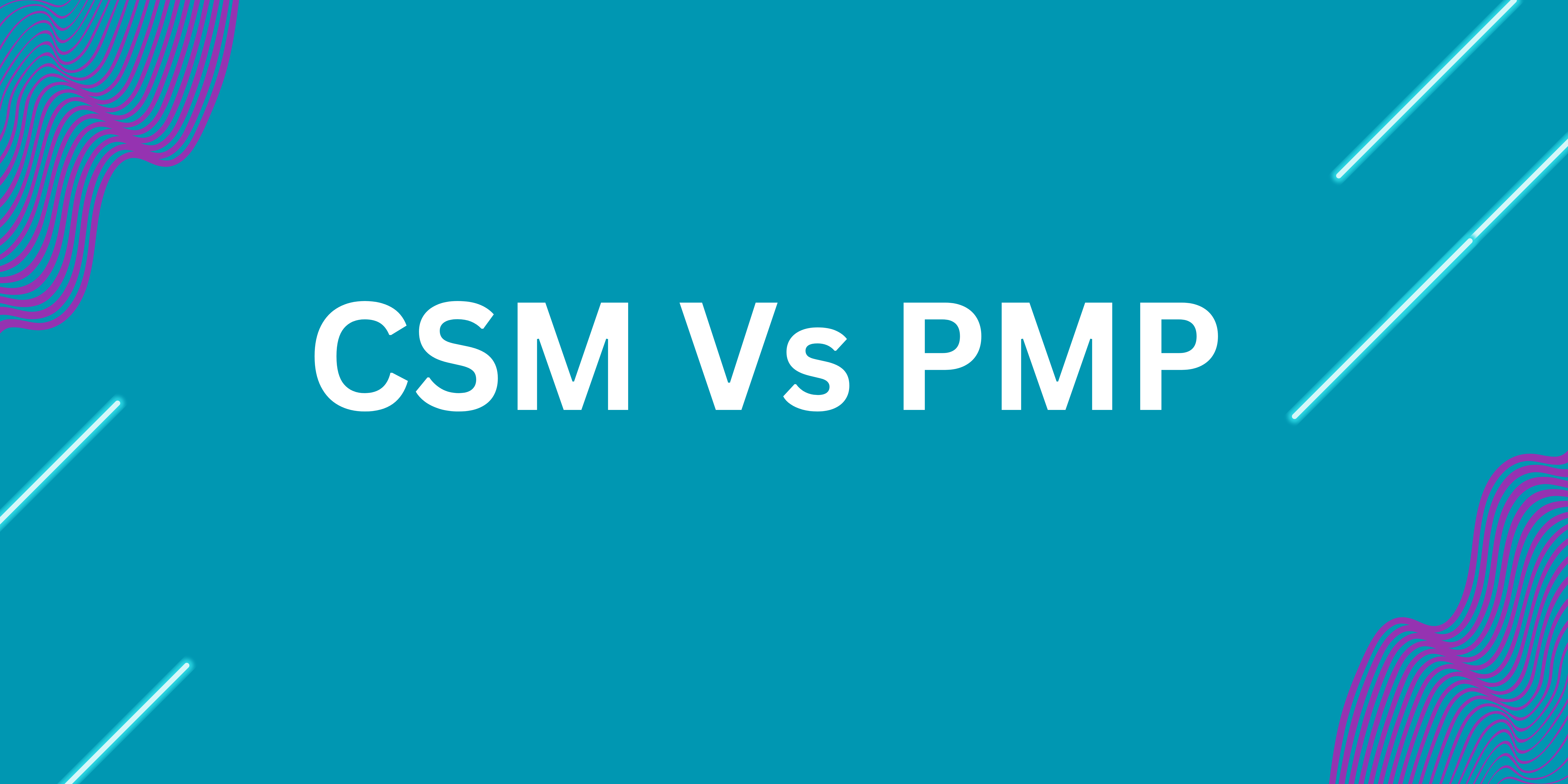05 AGU 2022
By AxiGlobe

In today’s fast-paced business environment, project management has become a vital discipline across industries. Two of the most respected certifications for project management professionals are the Certified ScrumMaster (CSM) and the Project Management Professional (PMP). Both offer great career opportunities, but they are designed for different approaches to managing projects. So, how do you choose between them?
Let’s dive into a detailed comparison of CSM and PMP to help you decide which certification aligns best with your career goals and the types of projects you manage.
The Certified ScrumMaster (CSM) certification is awarded by the Scrum Alliance and is designed for individuals looking to work in Agile project management, particularly in environments that follow the Scrum framework. Scrum is an Agile methodology that emphasizes iterative progress, collaboration, and flexibility, making it especially popular in software development, tech industries, and fast-paced product environments.
CSM certification is aimed at individuals who want to become Scrum Masters—leaders who facilitate Agile processes within Scrum teams. Scrum Masters are responsible for ensuring that the team follows the Scrum framework, removes obstacles, and helps the team improve their processes.
The Project Management Professional (PMP) certification is awarded by the Project Management Institute (PMI) and is one of the most widely recognized certifications in the project management field. Unlike CSM, which is focused on Agile practices, PMP is designed for professionals who manage projects across a variety of methodologies, including traditional Waterfall, Agile, and Hybrid models.
PMP is ideal for project managers who are responsible for the overall success of a project, ensuring it is completed on time, within scope, and on budget. The certification requires a comprehensive understanding of project management principles, processes, and techniques.
Both CSM and PMP certifications hold significant value in the project management world, but the right one for you depends on your career goals and the type of projects you manage.
Ultimately, your decision will be guided by the nature of the projects you handle, your career aspirations, and your preferred working style—whether you thrive in Agile environments or prefer the structured approach of traditional project management.
Both certifications will provide valuable career benefits, but understanding which one aligns with your professional path will help you make the right choice.
Oh! We recently winded up one batch, but no worries. We have a few more in the coming weeks.
Just opt-in for the updates about dates, prices, and curriculum with your preferences!
We keep you posted about the course.
©️2020 - 2025 AxiGlobe All Rights Reserved. The certification names are the trademarks of the respective authorised bodies
 USA
USA
Disclaimer :
Profession Scrum Master (PSM-I®, PSM-II®, PSM-III®), Profession Scrum Product Owner (PSPO-I®, PSPO-II®, PSPO-III®), Profession Scrum Developer (PSD-I®), Scaled Professional Scrum(SPS®),Professional Scrum With Kanban(PSK-I®) , Prove your knowledge of Professional Agile Leadership(PAL-I®), Prove your knowledge of Evidence-Based Management™ (PAL-EBM®), Prove Your Scrum with User Experience Knowledge
(PSU-I®) and Professional Scrum Trainer(PST®) are registered trademarks of Scrum.org®. AxiGlobe INC is a Professional Training Network member of Scrum.org®.
Certified Business Analysis Professional (CBAP®), Certification of Capability in Business Analysis(CCBA®), Entry Certificate in Business Analysis(ECBA®), Agile Analysis Certification(AAC®), Certification in Business Data Analytics(CBDA®), Certificate in Cybersecurity Analysis(CCA®), Certificate in Product Ownership Analysis(CPOA®) are registered trademarks of International Institute of Business Analysis(IIBA®). AxiGlobe INC is an Premier Level Endorsed Education Provider of IIBA®.
SAFe Agilist Certification (SA®), SAFe Program Consultant Certification (SPC®),SAFe Program Consultant Trainer Certification (SPCT®),SAFe Practitioner Certification(SP®),SAFe Release Train Engineer Certification (RTE®),SAFe Scrum Master Certification (SSM®),SAFe Advanced Scrum Master Certification (SASM®),SAFe DevOps Practitioner Certification(SDP®),Agile Product Manager Certification (APM®),Lean Portfolio Manager Certification (LPM®),Product Owner / Product Manager Certification (POPM®),SAFe Architect Certification (ARCH®),Agile Software Engineer Certification (ASE®) and SAFe Government Practitioner Certification (SGP®), Scaled Agile Framework® and SAFe® are registered trademarks of Scaled Agile, Inc.®. AxiGlobe INC is a Silver Partner of Scaled Agile, Inc®.
DevOps Foundation®, DevOps Leader®, SRE Foundation℠, SRE Practitioner℠, DevSecOps Foundation℠, Continuous Testing Foundation℠, Certified Agile Service Manager®, Continuous Delivery Ecosystem Foundation℠ and Value Stream Management Foundation® are registered trademarks of DevOps Institute. AxiGlobe INC is a Registered Education Partner (REP) of the DevOps Institute (DOI) ®. Read more...
